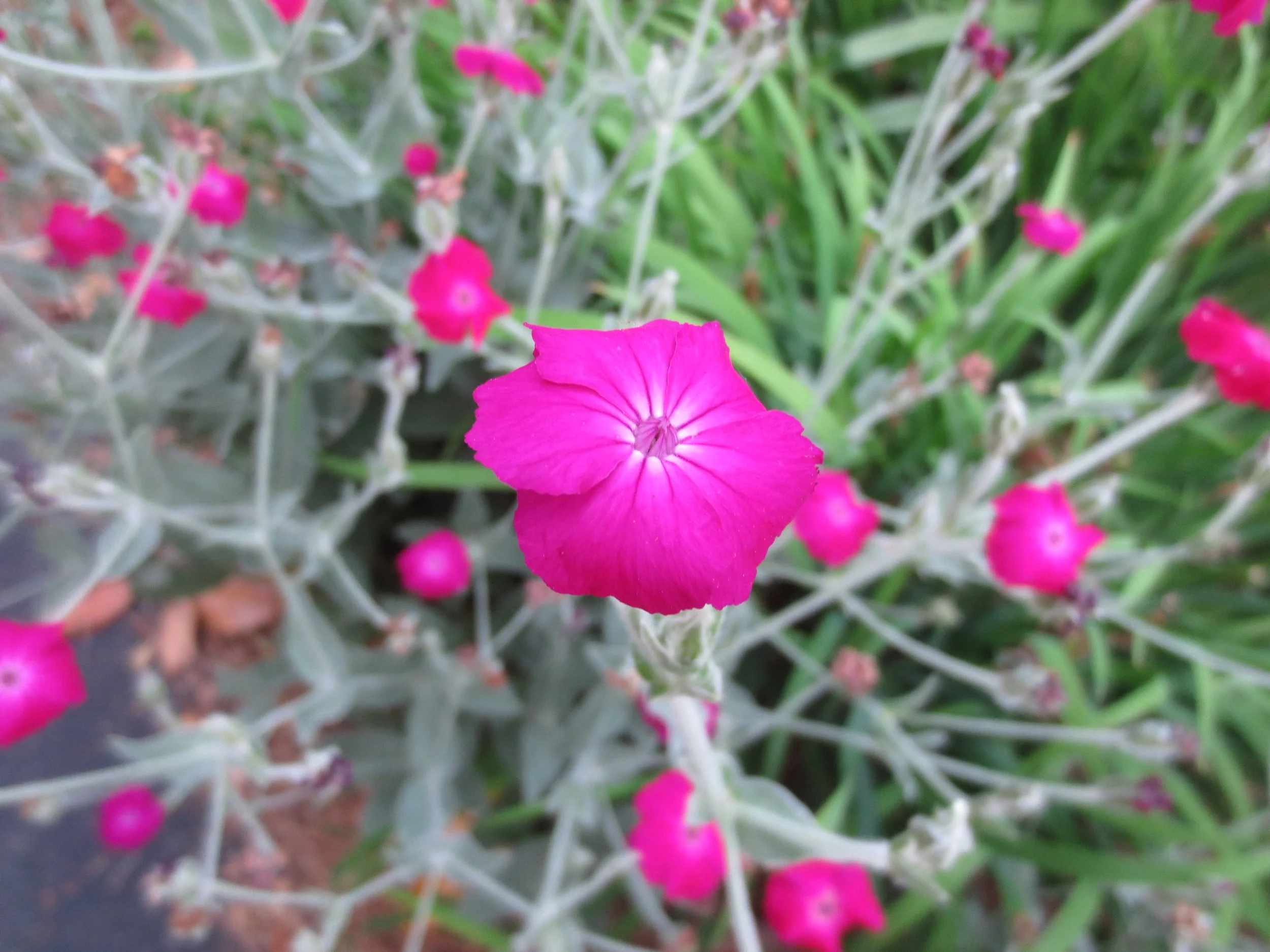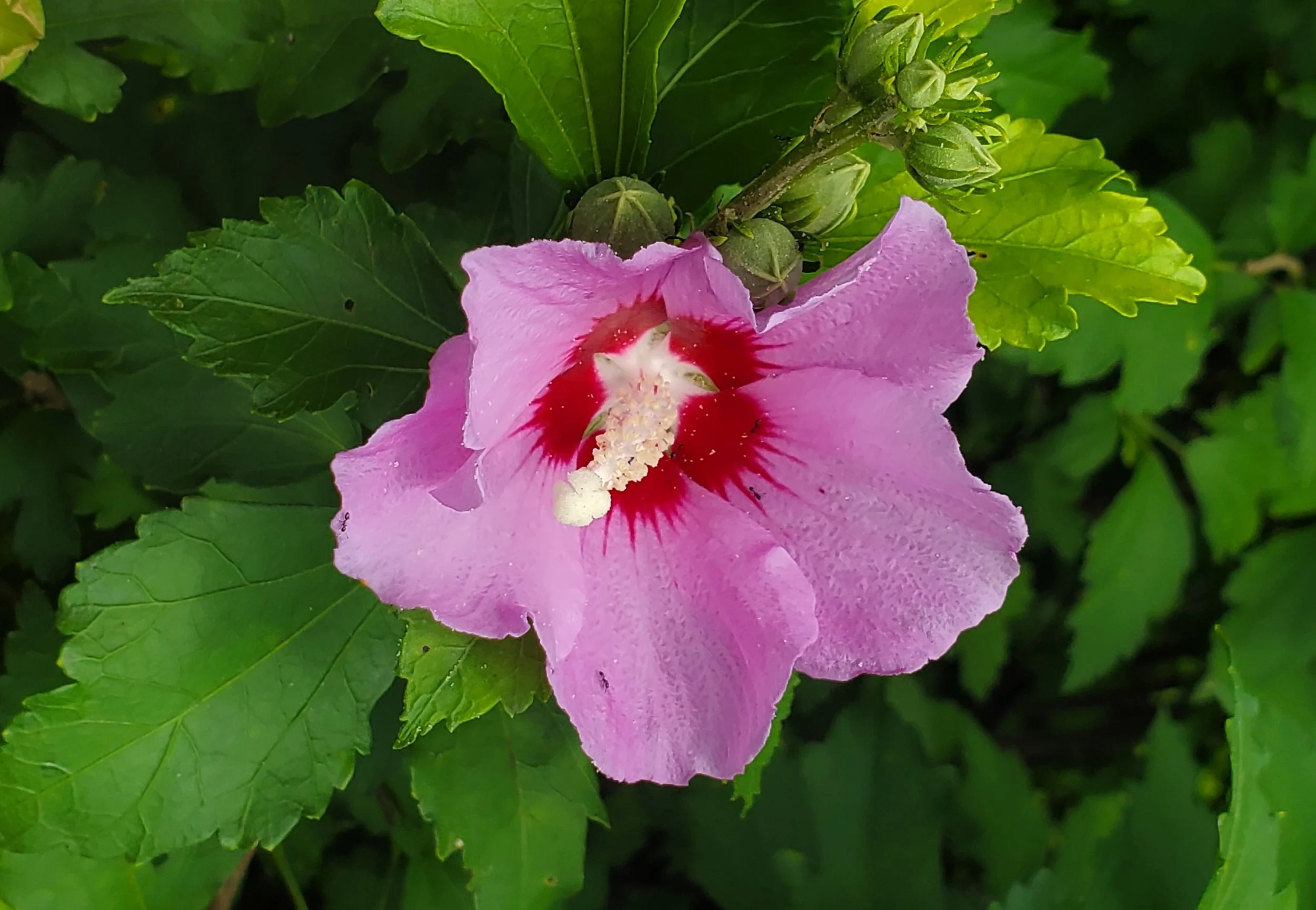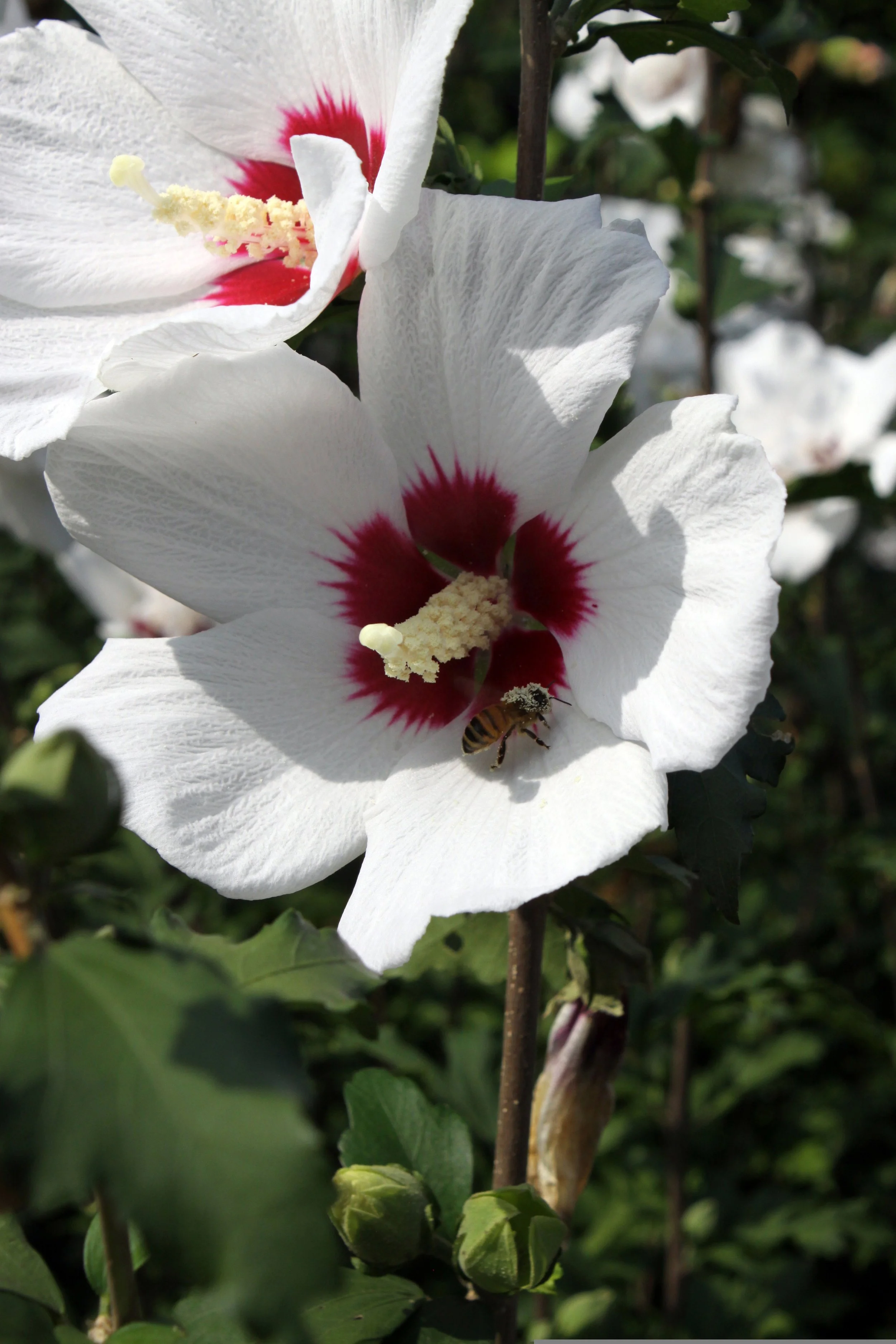Althea or Rose of Sharon (Hibiscus syriacus, pronounced hi-BIS-kus seer-ee-AY-kus) is a fast growing, low maintenance shrub. It prefers full sun or slight shade, grows in any type of soil, and is adaptable to most soil acidity levels. Plants can reach twelve feet tall and up to ten feet wide, although most mature at a lesser size. They prefer hot weather, and have the charming characteristic of flowering while everything else is drooping in the heat. The individual flowers look like a smaller version of giant tropical Hibiscus but unlike tropical Hibiscus, they are perennial in zones 5-9. They can be planted closely (five feet apart) to create a flowering hedge.
Rose of Sharon begins to bloom in early summer and continues until fall. Plants bloom on new growth. Tip pruning in late winter will encourage new growth and result in more flowers. Please use hand pruners, not powered hedge trimmers. Flowers come in shades of lavender, pink, blue, white, and bi-color. Older varieties produce large quantities of seed that often spread themselves about too enthusiastically for the typical gardener. This dampened their popularity until hybridists introduced a number of low-seed or no-seed cultivars.
Cultivar ‘Diana’ has pure white flowers that mix well with other flowers and shrubs, and is a strong performer. Several semi-double or double-flowered varieties are available. Some of the newer introductions, like ‘Lucy’ or ‘Blushing Bride’ produce fewer seeds. Fully double Blueberry Smoothie™ and Peppermint Smoothie™ are sterile. Proven Winners ‘Sugar Tip’® has a variegated leaf and pale pink, double flowers. It is seedless and semi-dwarf, reaching six feet. Rose of Sharon is still on the Invasive List in Kentucky and Virginia.
Drought-stressed plants that suddenly receive an onslaught of rain are prone to dropping buds in a condition labeled Flower Bud Drop. Provide irrigation in extended drought to avoid this. Although rare, Leaf Spot and Leaf Rust can damage plants. These are treated with a foliar anti-fungal. Plants are occasionally bothered by Japanese Beetles or aphids. They are deer resistant. Hummingbirds and bees, especially larger bees, love the flowers. For this reason, avoid using insecticides or systemics to combat insect infestations. Instead, hand pick Japanese Beetles and use a strong spray of water to wash aphids off buds and tender new growth.
After several years, Rose of Sharon tends to lose its foliage at lower levels. If this is a concern, plant it behind a perennial that will conceal its lower regions, or intentionally prune it to a single-trunk tree form while the plant is young. This is a hardy, long-lived, low-maintenance shrub and is ideal in a pollinator garden or children’s garden.
This Rose of Sharon is blooming in a parking lot island at my local pharmacy, surrounded by asphalt pavement.
A bee enjoys this bloom.


